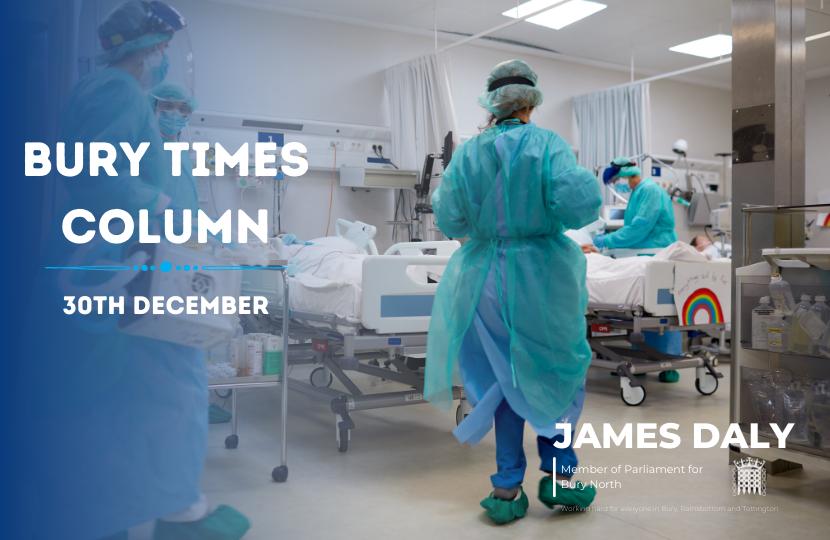
We have all been aware for many years of the winter pressures faced by the NHS.
On the 2nd December 2012, the Guardian newspaper reported, “ Hospitals, “ full to bursting” as bed shortage hits danger level.” On the 27th March 2015, the Guardian headline read, “ Hospital bed occupancy hit record high risking care.” Pre-pandemic on the 25th November 2019 it noted, “ Hospital beds at a record low in England as NHS struggles with demand.” I could have chosen similar headlines from other years highlighting the crucial issue of bed capacity within the NHS during periods of increased demand but at no point, on no other occasion prior to the pandemic have we ever considered a lockdown or the imposition of draconian restrictions upon our fellow citizens.
Those who are advising the Government to impose further restrictions are warning that the NHS may be overwhelmed due to the omicron strain of Covid 19. However, the evidence we have at present does not seem to support this view. The Prime Minister has been informed that the omicron hospital risk is two-thirds lower than the previously dominant delta variant and the symptoms appear to be milder. There are far fewer people in hospital with Covid 19 this Christmas despite cases being three times higher, with 7,536 patients in hospital on December 26th compared to 18,350 on the same day last year.
We can also thank our brilliant vaccine roll-out for supporting this encouraging data. Indeed, following the Prime Minister’s call for all those eligible to get a booster, by the 17th December, 50% of UK adults had received a Covid-19 booster jab with the number now significantly increased on that figure. The booster has been shown to offer strong levels of protection and I would urge everyone to get vaccinated. It is sobering to note, in a briefing given to Conservative MP’s by the Health Secretary in the week before Parliamentary recess it was stated that 90 % of those with Covid 19 in ICU beds within the previous 7 days throughout England were unvaccinated.
We are also seeing positive signs from the rollout of the Astra Zeneca vaccine at the start of the pandemic to vulnerable people. Clive Dix, former Chief of the country’s vaccine taskforce has said that the durable cellular immunity response produced by the AZ jab can potentially “ last for life” and may be the reason we seeing a lower death toll in the UK compared to Europe.
In my view, this information justifies the Prime Minister’s decision to impose no further restrictions at this time and gives us all grounds for optimism as we go into the new year.




